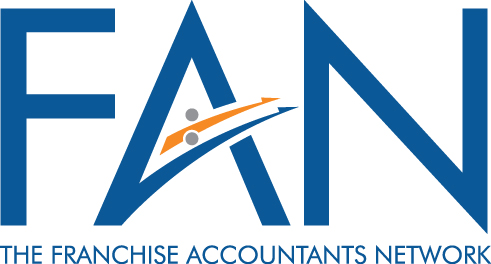 To have the best chance of success in a franchise it's important to thoroughly assess the financial aspects of starting and running a business.
Based on our experience there are 5 financial conversations you must have when you assess a franchise opportunity. These conversations will help you build a solid foundation for success and reduce the risk of financial problems once your business is open.
To have the best chance of success in a franchise it's important to thoroughly assess the financial aspects of starting and running a business.
Based on our experience there are 5 financial conversations you must have when you assess a franchise opportunity. These conversations will help you build a solid foundation for success and reduce the risk of financial problems once your business is open.
Here are our suggestions for who to talk to and what to discuss.
1. Personal and family finance
Your new business will be a huge part of your life, so it’s important to consider how it will fit in your life.
Start off by considering your goals and family life. What do you want from the next few years of your life? What sort of lifestyle do you want? Consider financial and non-financial aspects. Discuss this with your spouse or partner, if you have one.
Also, it’s helpful to talk to a few franchise owners and ask them about the impact of business on their family and personal life. For example, what was it like at the start? How have things changed throughout their business ownership?
Once you’ve thought through all this it’s a good idea to write down your goals. Your business will form part of how you achieve them
Next, think through the financial aspects of the franchise you're considering and assess how it might affect your financial situation.
Early on in the franchise evaluation process you should obtain financial information from the franchisor. This will be included in the Disclosure Document, which all franchisors are required to provide. If you're considering buying into an existing business, there will also be figures from the vendor. At the very start you'll need to get a sense of how much revenue and profit the business can make and how long it takes to become profitable. Also, find out how much it costs to set up the business.
You can find some suggestions for financial questions in this article.
2. Talk to an accountant
Part of the process of investigating a franchise or business opportunity is getting advice from an accountant experienced in franchise matters.
This is not just about help to set up a business structure or tax advice. The idea is to find someone who can work through the financial side of starting a franchise so you understand the implications and can make an informed decision.
With your accountant, work out detailed financial goals and produce a budget and cashflow for the business. This lets you see if the business will generate enough money for you to have the life you pictured.
To work out the budgets, use information about sales and costs from the franchisor. Also your own research regarding customer numbers, rent and other costs.
With your budget, consider what happens to the results at high, low and mid range sales, and also what the figures look like if costs increase. It’s important to do this so you can work out how you’d cope financially under different circumstances.
Now you have detailed figures, again consider your family situation. How do these insights change things?
3. Talk to a small business banker
Another financial conversation you’ll need to have is with a banker. Running your business finance is different from personal so talk to a small business specialist to get the right type of advice, proper business loans and bank facilities.
Your banker should be able to give you advice on financing options and also account types, credit cards and merchant facilities so customers can pay you. They can also help with superannuation and insurance if needed.
Many of the banks have specialist franchise bankers who understand the franchise industry, so make sure you ask for them.
The bank will want to see evidence of how you’ll be able to repay loans. So be prepared to show them that. It means having a business and personal budget, and also being able to demonstrate your plan and commitment. So, be prepared with a business plan.
4. Talk to a financial adviser
Even if you don’t have a financial adviser at the moment, it can be a good idea to get advice from a financial planer who can review your savings, investments and superannuation.
Taking on a business can be a big change in your life and it’s a good idea to take a look at any changes needed to your financial plans. The adviser can also give you advice on what insurance to consider, for example life and sickness or disability cover.
Your accountant should be able to recommend a financial planner and work with them if needed.
5. Talk to a lawyer
Really? Financial conversations with lawyers? Yes, absolutely!
When getting advice on the legal aspects of becoming a franchisee, make sure you get an explanation of the financial implications of the arrangements you’re making and contracts you’ll sign.
If you’re in a relationship, it’s a very good idea to get individual legal advice on the financial aspects of business ownership, not just the franchise aspects. This allows both partners to ask their own questions about the risks and responsibilities – and to do so individually. Then you should talk through things as a couple.
Owning a business can be a fantastic opportunity to build wealth and achieve family goals. But don't neglect the financial conversations.
(A version of this article was originally published by Business Franchise Magazine in March 2013)
This article was originally published at www.smartfranchise.com.au. It was written by Peter Knight and Kate Groom, co-founders of the Franchise Accountants Network.



